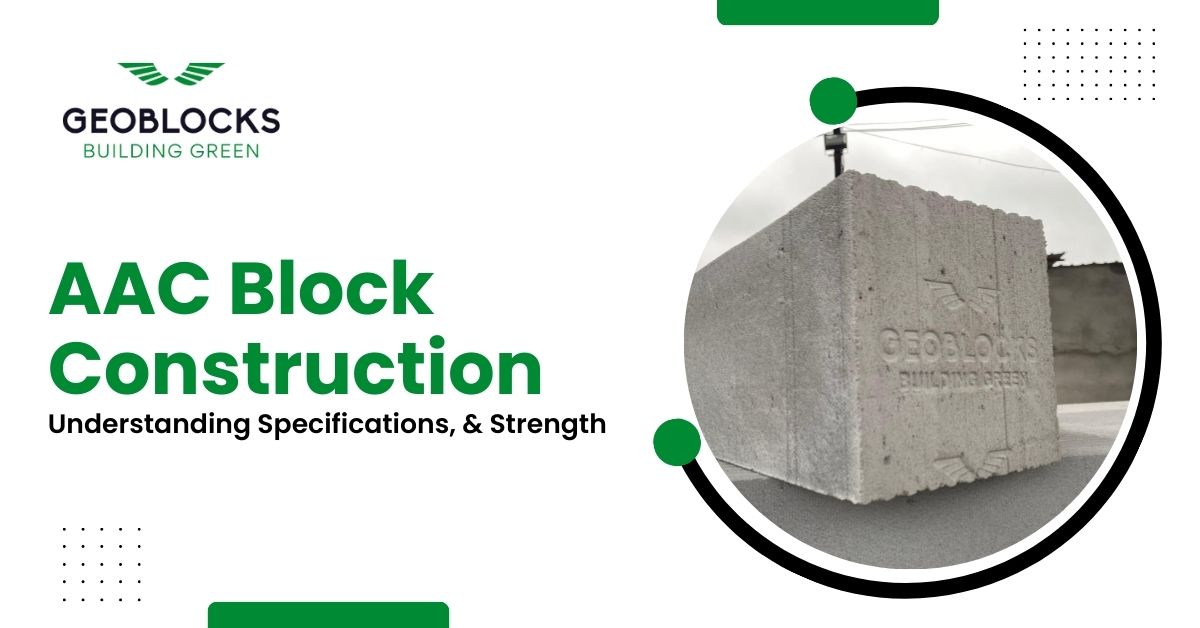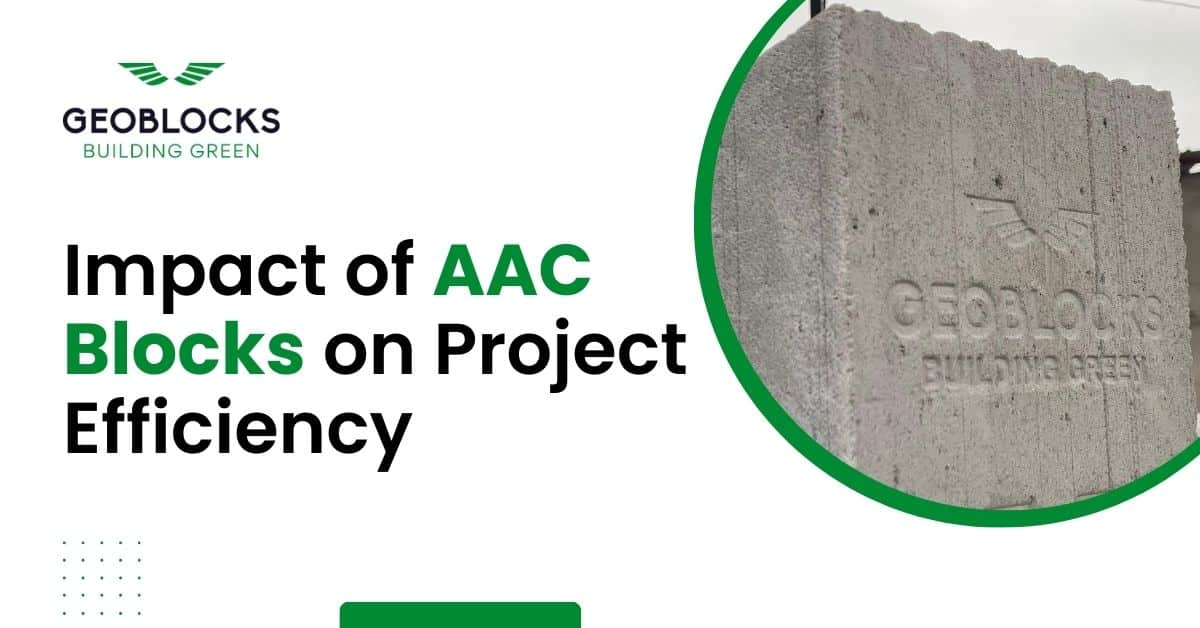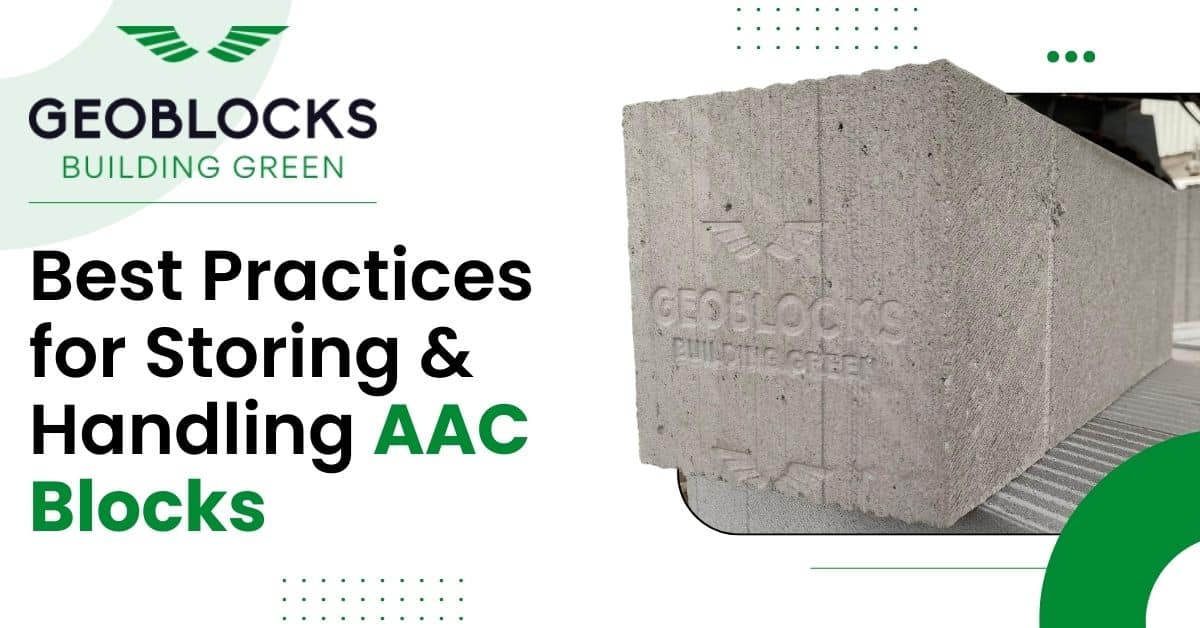Installing AAC blocks the right way is crucial for long-lasting, energy-efficient, and eco-friendly construction. Whether…

In modern construction, building materials play a crucial role in determining the strength, durability, and sustainability of a structure. One such material that has gained immense popularity is the AAC Block (Autoclaved Aerated Concrete Block). With numerous benefits such as lightweight properties, thermal insulation, and eco-friendliness, AAC Blocks are becoming the preferred choice for builders and architects alike. In this blog, we’ll explore the specifications and strength of AAC Blocks, and how they contribute to high-quality construction.
What are AAC Blocks?
AAC Blocks, or Autoclaved Aerated Concrete Blocks, are lightweight, precast construction materials that offer superior qualities compared to traditional bricks. Made from raw materials like fly ash, cement, lime, and gypsum, these blocks are cured in an autoclave under high pressure, resulting in a strong and durable product that can be used in various types of construction. At GEOBLOCKS, we are proud to manufacture high-quality AAC Blocks that meet stringent industry standards and deliver outstanding performance in every construction project.
AAC Block Specifications
Understanding the specifications of AAC Blocks is essential for ensuring their suitability in construction projects. The following are the key technical specifications that define the quality and application of AAC Blocks:
| PARAMETERS | SPECIFICATIONS |
| Density | 550-650 kg/m3(Oven Dry) |
| Compressive Strength | 4 N/mm2 |
| Modulus of Elasticity | 2040 N/mm2 |
| Coefficient of Thermal Expansion | 8.1 x 10-6 K-1 |
| Water Absorption | 8% (at equilibrium) |
| Thermal Conductivity | 0.16 W/(m.K) |
| Drying Shrinkage | 0.04% |
| Fire Resistance | 4 Hrs. (150mm wall) |
| STC Rating | 43db (100mm wall) |
Strength of AAC Blocks
When it comes to the strength of AAC Blocks, they are known for their excellent load-bearing capacity. Here are some important factors that define their strength:
Compressive Strength
AAC Blocks have a compressive strength of 3-4 N/mm², which is sufficient for most low and mid-rise buildings. Despite their lightweight nature, they offer exceptional strength, ensuring that structures built with them are sturdy and long-lasting.
Seismic Resistance
AAC Blocks are perfect for construction in earthquake-prone areas. Their low density and flexibility allow buildings to absorb seismic forces more effectively, reducing the risk of structural damage.
Durability
Due to their non-biodegradable nature, AAC Blocks are highly durable and resistant to pests, termites, and other harmful factors, ensuring longevity for the building.
At GEOBLOCKS, we ensure that each AAC Block we manufacture is rigorously tested to meet industry standards for compressive strength and durability. This commitment to quality guarantees that your construction project is safe, reliable, and built to last.
Why Choose AAC Blocks for Construction?
Sustainability: AAC Blocks are environmentally friendly as they are made from industrial waste materials like fly ash and require less energy in production. This makes them a sustainable choice for green building projects.
Faster Construction: The larger size of AAC Blocks compared to traditional bricks allows for quicker construction, saving time and reducing labor costs.
Cost-Effective: While the initial cost of AAC Blocks may be slightly higher than traditional bricks, the long-term savings in energy costs, maintenance, and construction time make them a cost-effective solution.
Frequently Asked Questions
What are AAC Blocks?
AAC Blocks (Autoclaved Aerated Concrete Blocks) are lightweight, precast building materials made from a mixture of fly ash, lime, cement, gypsum, and water. They are cured under high pressure and temperature in an autoclave, making them strong, durable, and energy-efficient.
How Strong are AAC Blocks Compared to Traditional Bricks?
AAC Blocks have a compressive strength of 3-4 N/mm², which is comparable to traditional clay bricks. Despite being lightweight, they offer sufficient load-bearing capacity for low- to mid-rise buildings and provide better seismic resistance.
What Raw Materials are Used in the Manufacturing of AAC Blocks?
AAC Blocks are primarily made from raw materials like fly ash (a byproduct of coal combustion), cement, lime, gypsum, and water. These materials make the blocks eco-friendly and sustainable.
Are AAC Blocks Suitable for All Types of Construction?
Yes, AAC Blocks are versatile and suitable for a variety of construction types, including residential, commercial, and industrial buildings. Their lightweight nature and strength make them ideal for both load-bearing and non-load-bearing walls.
Why Should I Choose GEOBLOCKS for AAC Blocks?
At GEOBLOCKS, we provide high-quality AAC Blocks that meet industry standards for strength, durability, and sustainability. As a leading manufacturer in Vadodara, our blocks offer superior performance and are perfect for modern construction projects. We ensure rigorous quality control in our manufacturing process, making GEOBLOCKS a trusted choice.
Conclusion
In conclusion, AAC Blocks are a game-changer in the construction industry, offering unmatched benefits in terms of specifications and strength. Their lightweight nature, thermal insulation, fire resistance, and seismic resilience make them an ideal choice for modern building projects. At GEOBLOCKS, we are dedicated to providing high-quality AAC Blocks that meet your construction requirements, ensuring your projects are not only durable but also sustainable. Explore our range of AAC Blocks today and experience the difference in quality construction with GEOBLOCKS, your trusted partner in AAC Block manufacturing.




